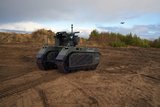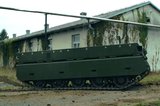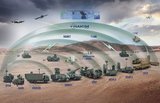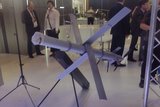Rheinmetall to upgrade Fuchs/Fox vehicles
Rheinmetall will modernise the German armed forces’ Fuchs/Fox armoured transport vehicles under a €135 million contract announced on 12 December.
The company will upgrade 90 vehicles to the latest 1A8 standard. The upgrade gives the vehicle increased resistance to land mine strikes and improved protection against ballistic threats.
Principal modifications include structural alteration of the hull; new seats and suspended seating in the fighting compartment to keep soldiers’ feet safely off the floor of the hull; reinforcement of the wheel housings, doors and window mountings; additional storage bins and reinforcement of the vehicle exterior.
Delivery will take place between 2017 and 2020.
Rheinmtall has already upgraded 177 Fuchs/Fox vehicles to the 1A8 standard across the mobile command post and armoured personnel carrier versions, a field ambulance, an EOD vehicle as well as an NBC detection variant and the Route Clearing Package operator vehicle. Additional Fuchs/Fox vehicles will now be reconfigured for command, APC and EOD roles, with an option for Joint Fire Support Coordination Team vehicles.
This will bring the total number of 1A8 Fuchs/Fox vehicles deployed by the German military to 267.
Related Equipment in Defence Insight
More from Land Warfare
-
![World Defense Show 2026: DOK-ING working on MV-8 variants and reveals specs ahead of Eurosatory]()
World Defense Show 2026: DOK-ING working on MV-8 variants and reveals specs ahead of Eurosatory
The Croatian company began the development of the MV-8 modular uncrewed platform in the early 2020s. Specifications for the vehicle were revealed to Shephard at World Defense Show 2026.
-
![World Defense Show 2026: Turkish and European industries will cooperate, says Aselsan boss]()
World Defense Show 2026: Turkish and European industries will cooperate, says Aselsan boss
Aselsan was formed 50 years ago in response to difficulties Turkey was facing in sourcing major systems internationally. While some challenges still remain, company president Ahmet Akyol believes a rapprochement is possible.
-
![World Defense Show 2026: Russia reveals details of new loitering munition]()
World Defense Show 2026: Russia reveals details of new loitering munition
The Kalashnikov RUS-PE cannister-launched man-portable loitering munition was displayed as a model at World Defense Show 2026 with a company official telling Shephard it was “in service and in low-rate initial production”.
-
![World Defense Show 2026: MARSS displays new Nation Shield air defence C2 system]()
World Defense Show 2026: MARSS displays new Nation Shield air defence C2 system
Nation Shield is the latest iteration of the MARSS C2 system and is designed to provide C2 further forward along with more capable air defence.























